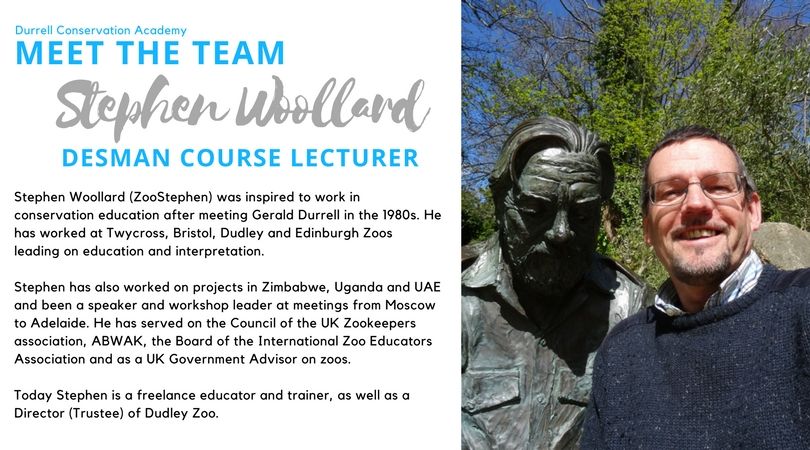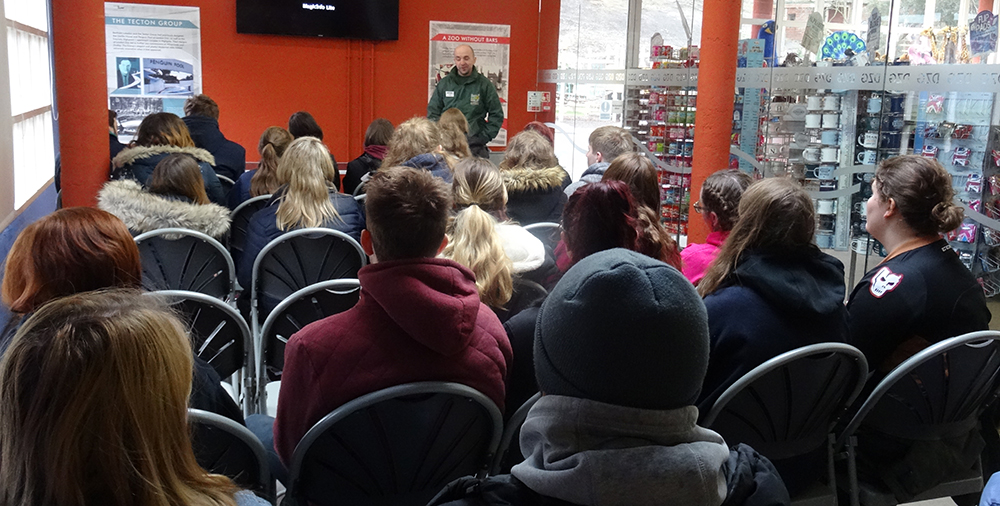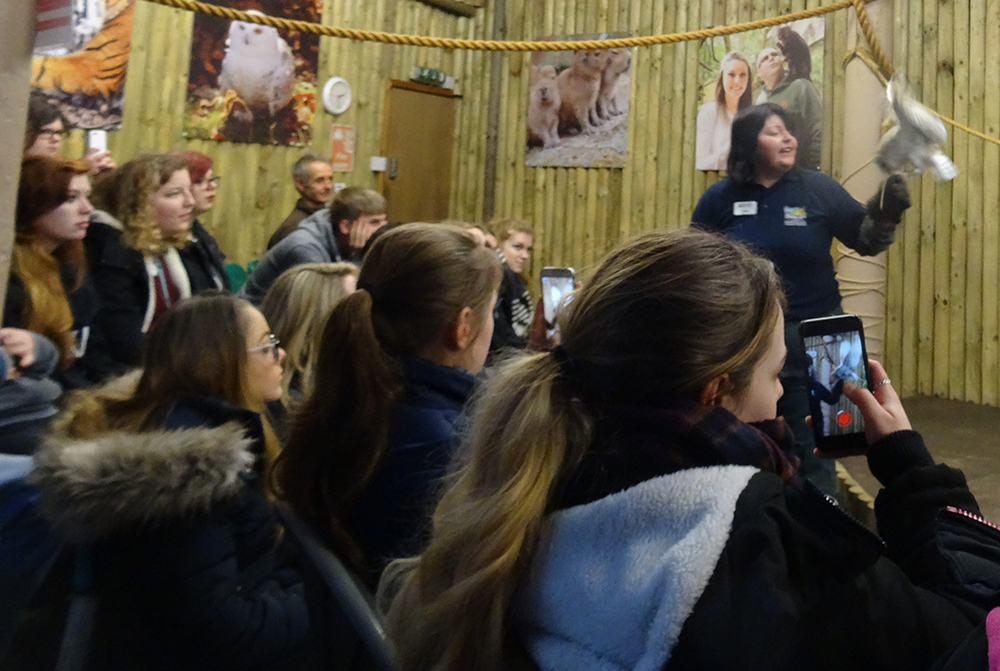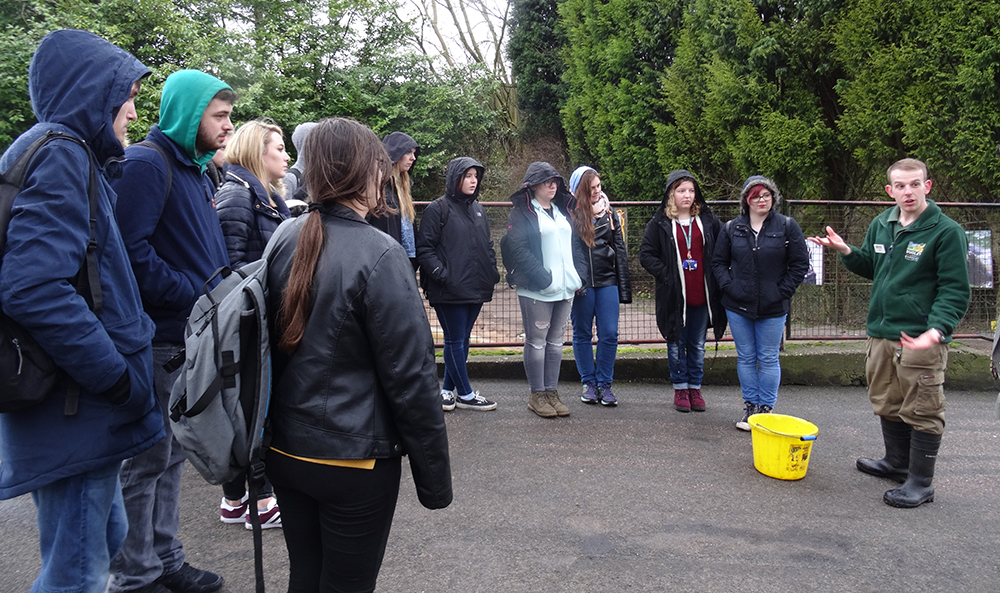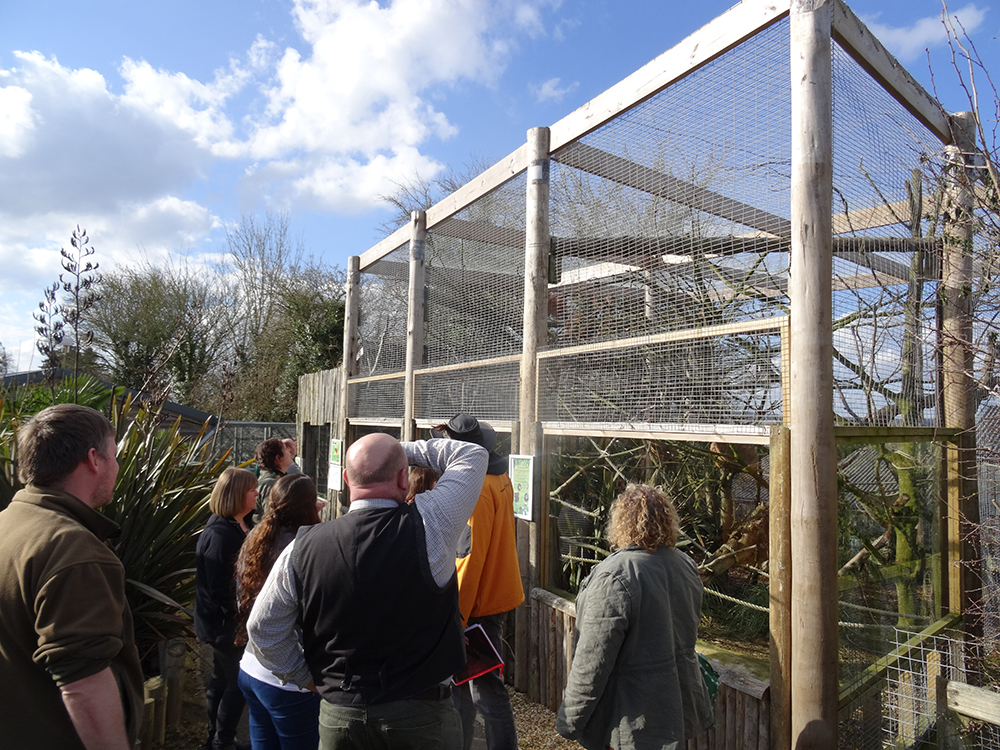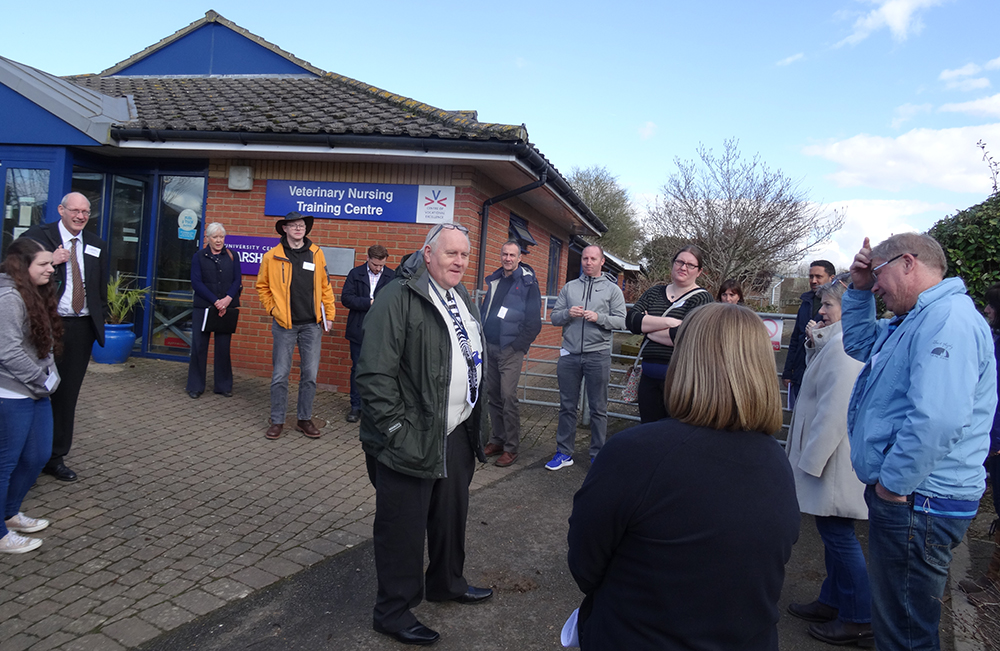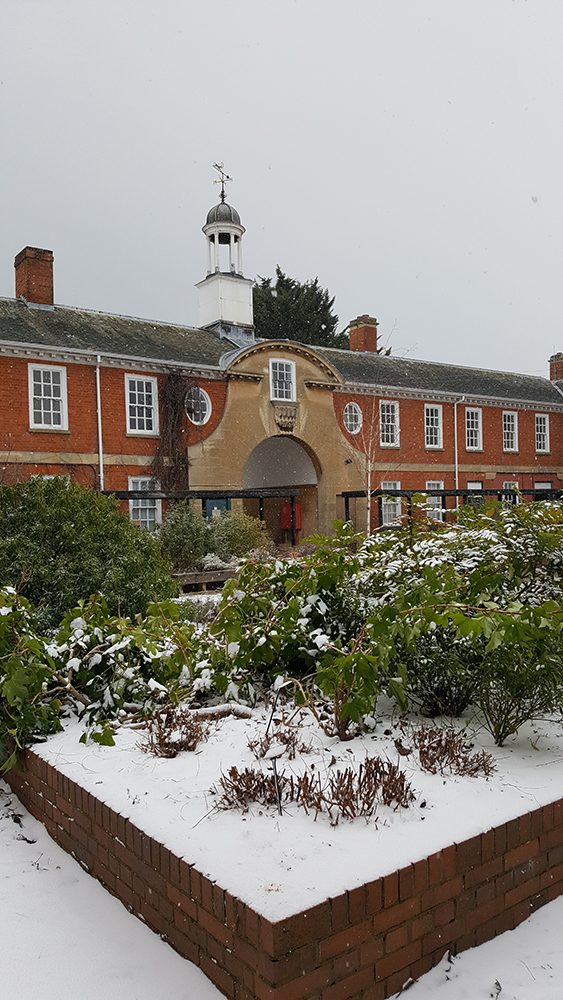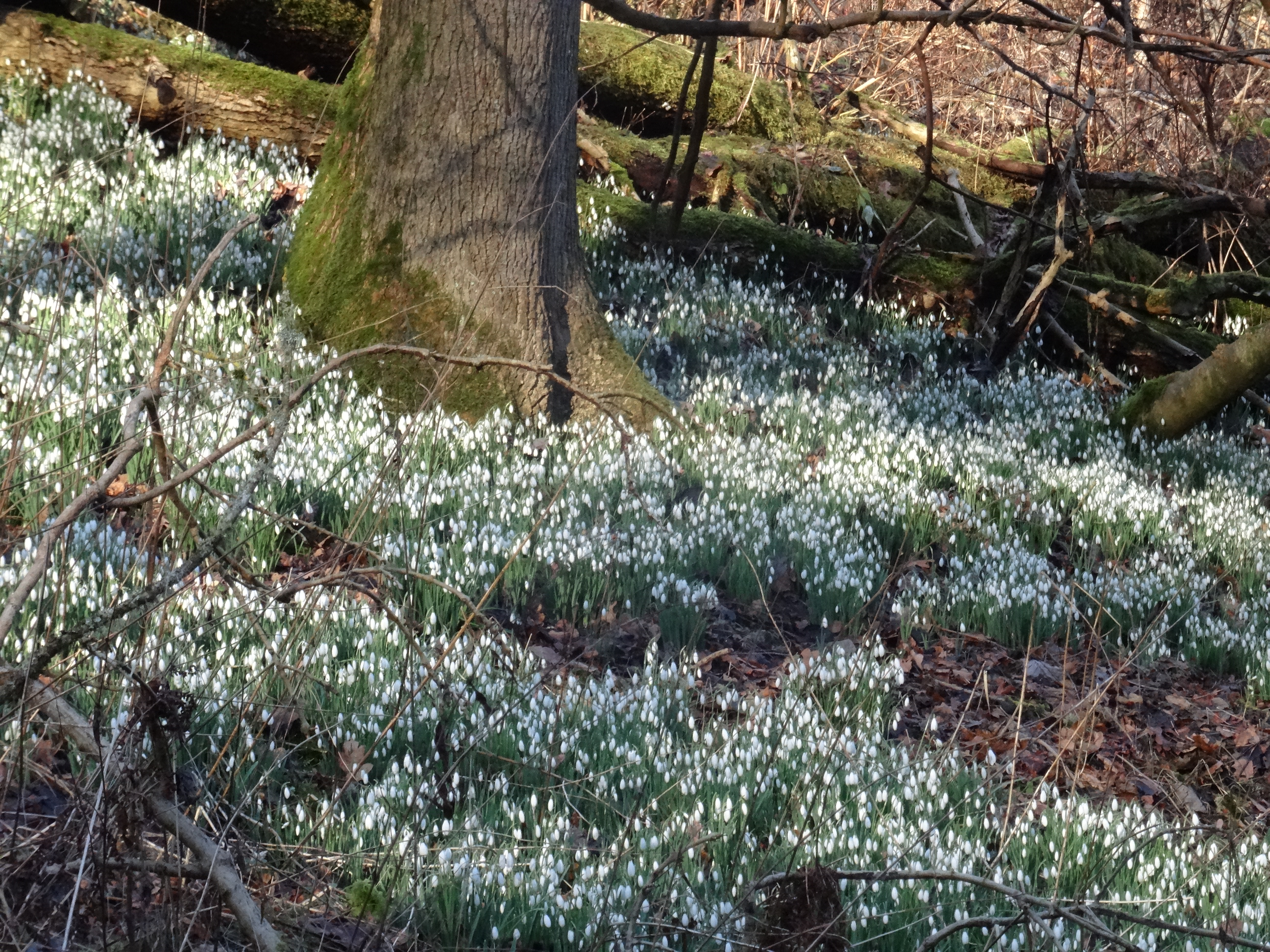Chimelong Group are the leading zoological organisation in China, currently operating 3 zoos: Chimelong Safari and Chimelong Birds Park in Guangzhou City and Chimelong Ocean Kingdom in Zhuhai (a couple of hours drive south, near Macau). The Group also manages theme parks/resorts and hotels with the animal attractions.

I’m excited and pleased to be working for them, helping develop education strategy and programmes. They already do some wonderful work and have some great people. The potential for conservation education and having an influence on people’s understanding of science and action for sustainability, is immense; not least with the millions of visitors to the zoos coming as tourists from other parts of China, as well as locally.
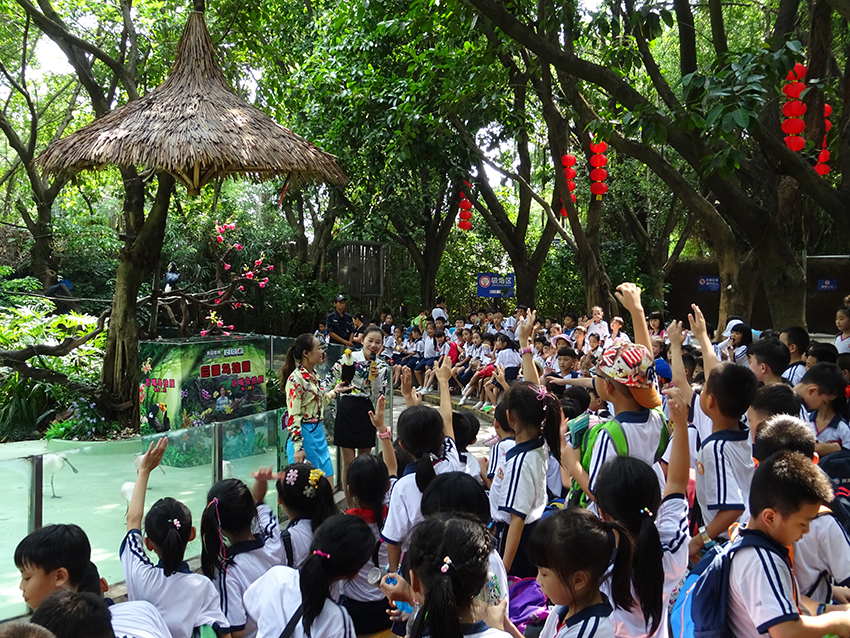
There are challenges of course, but to a large extent these can be seen as opportunities. The fact the organisation has a desire to strive for excellence and both improvement and development, are great platforms to work with. A bonus is that they are very successful and committing resources to enable activity and a quality visitor experience.
Many “in the west” are quick to criticise or jump to conclusions as soon as you say China or Asia, whereas the reality here is that, yes there is room for change and improvement, but it is gradually being addressed and high standards achieved and aimed for. Indeed, many “western” zoos need to, and can do the same.

The worldwide appeal of zoos in all their forms (over 10% of world population visiting a zoo each year) is something, if utilised and developed, can be a huge force for conservation, and education engagement. It’s great to be working in this field of activity. making a small contribution to a big effort.
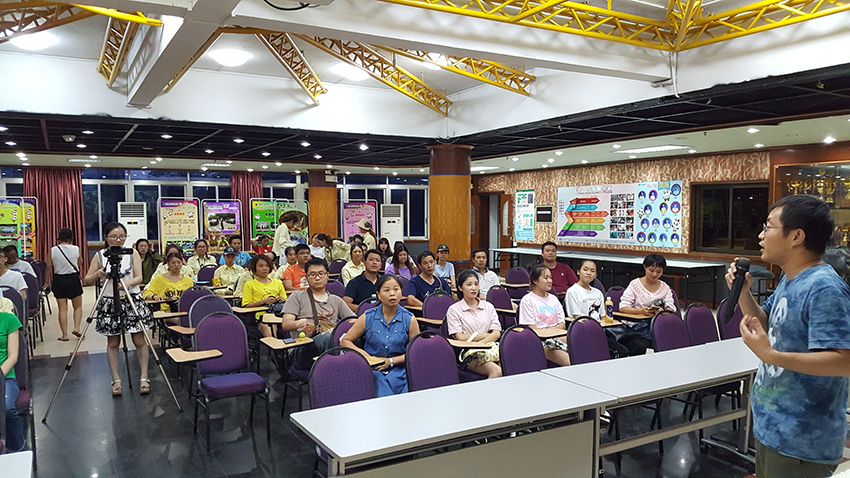


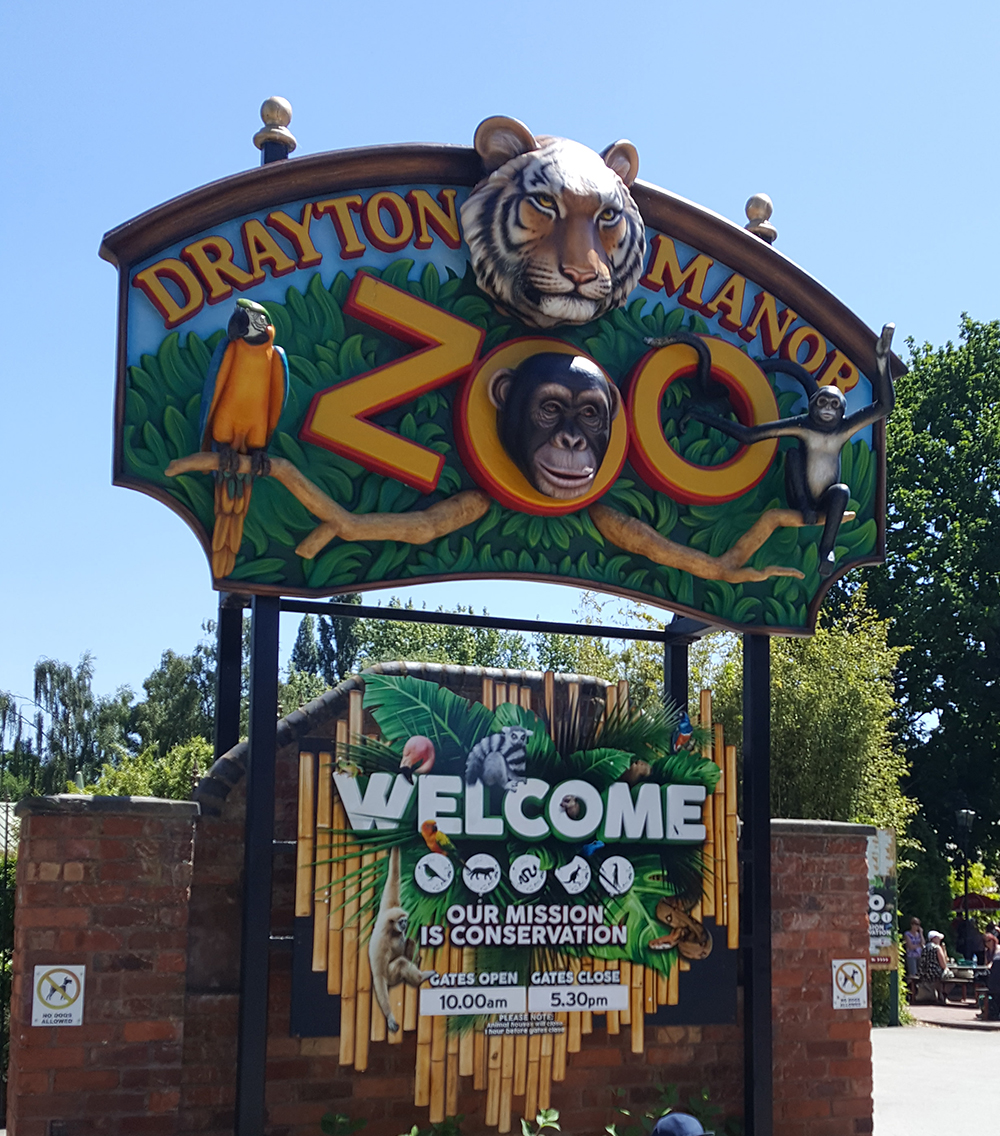
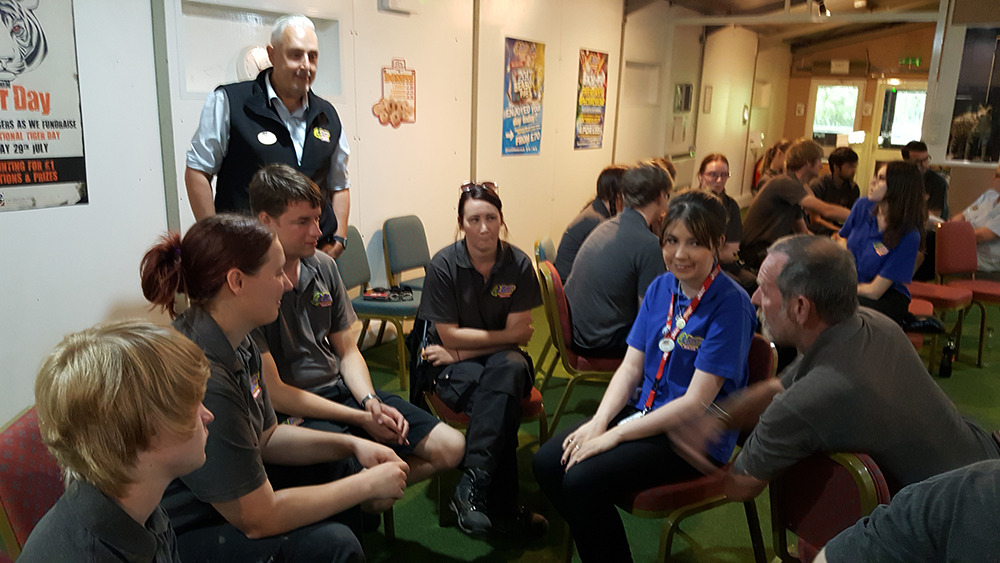
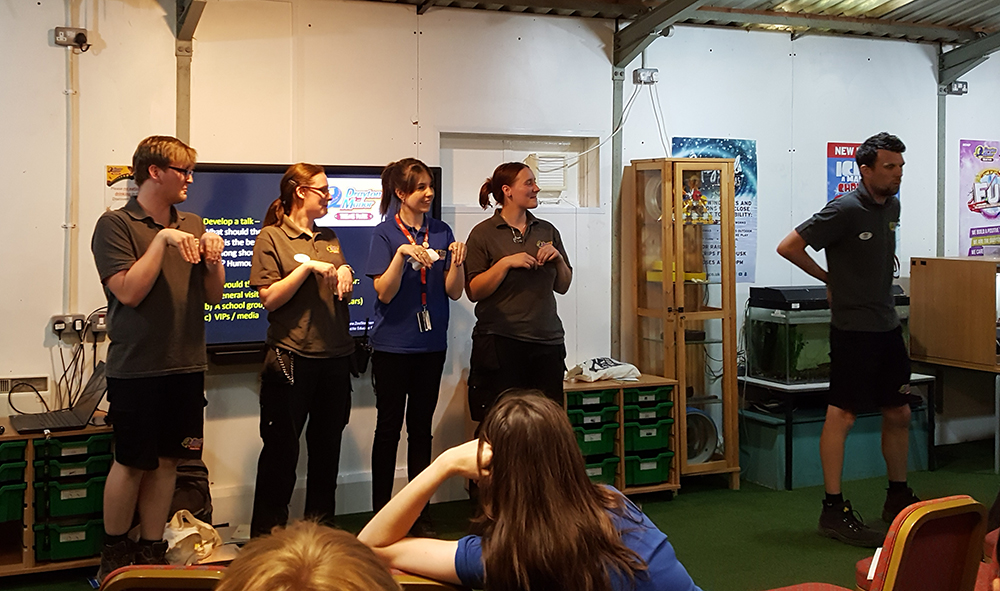
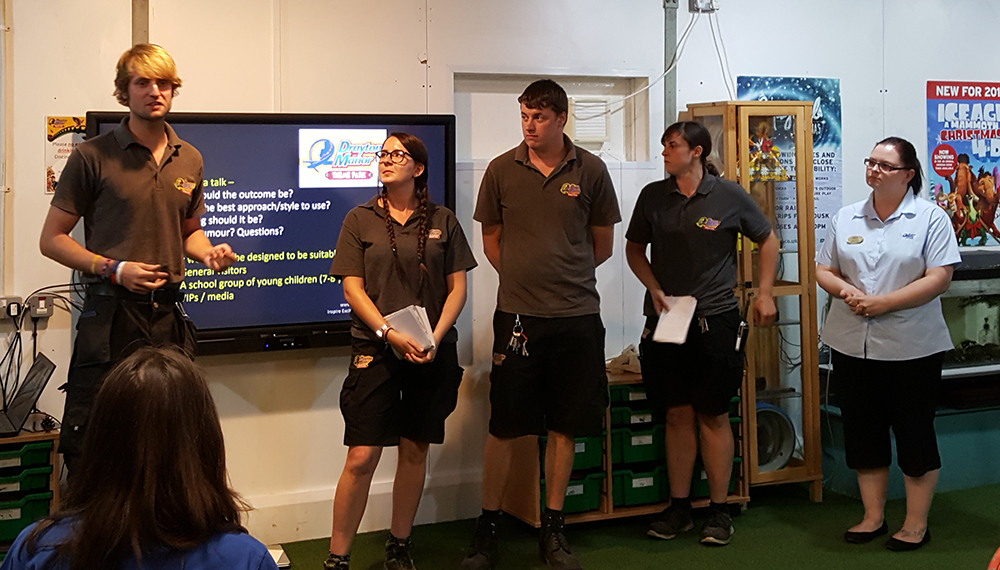
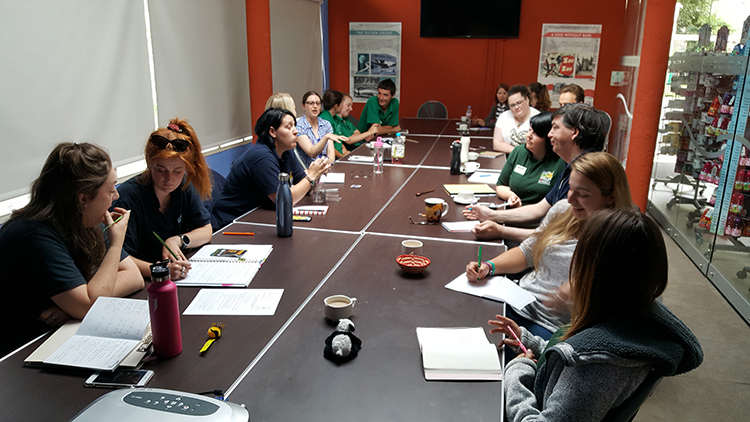 Communication and Presentation Skills training sessions are fun, and its great meeting new people.
Communication and Presentation Skills training sessions are fun, and its great meeting new people.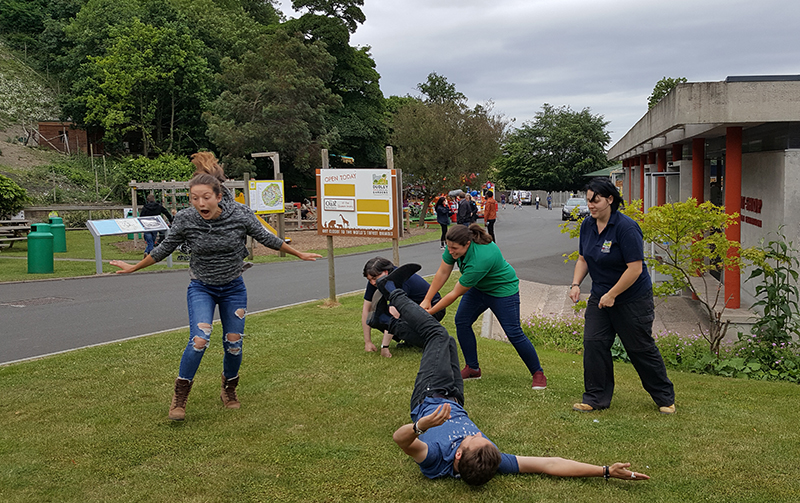
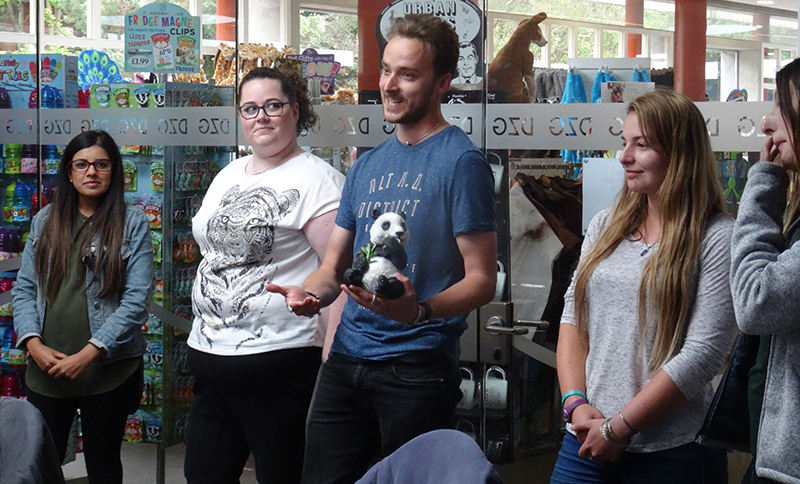
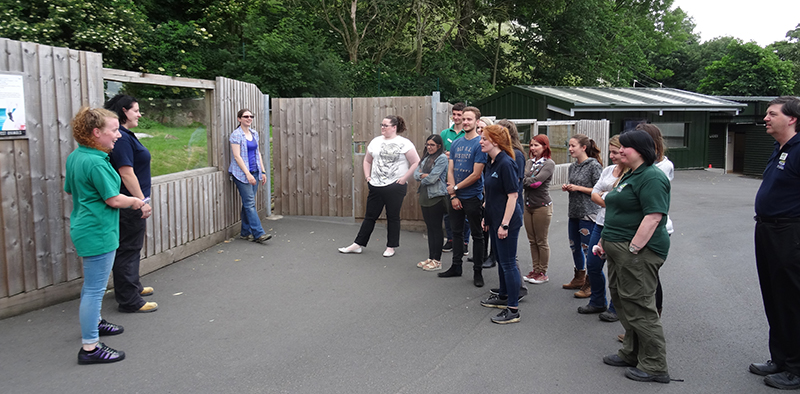
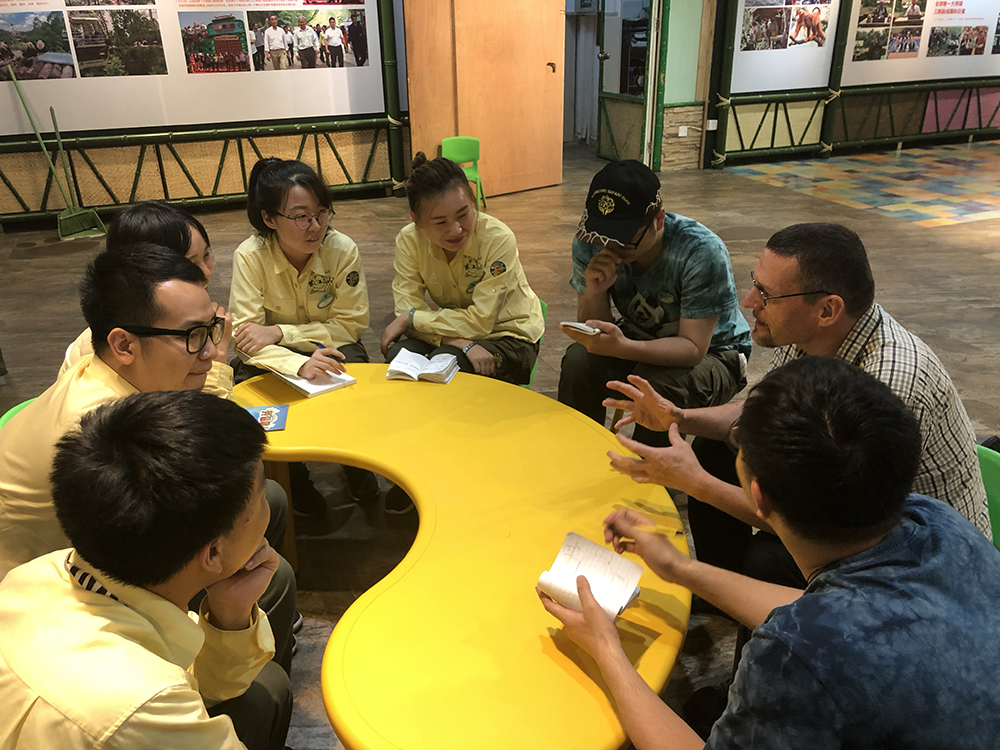
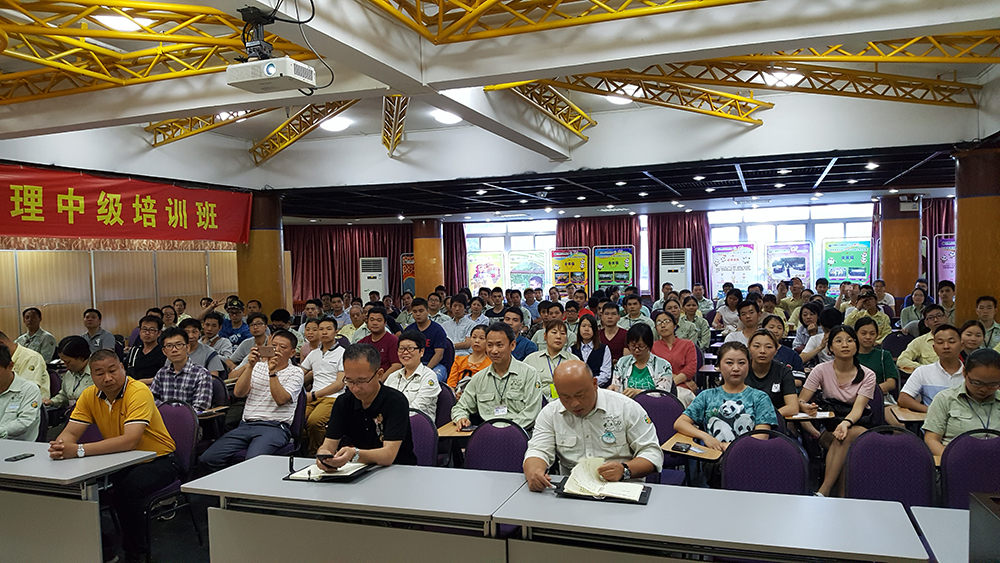
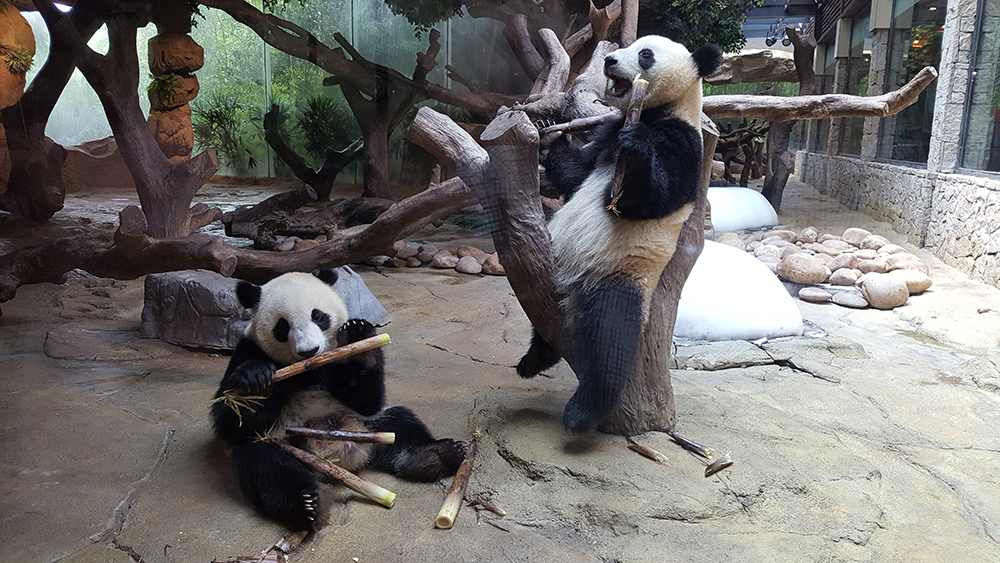
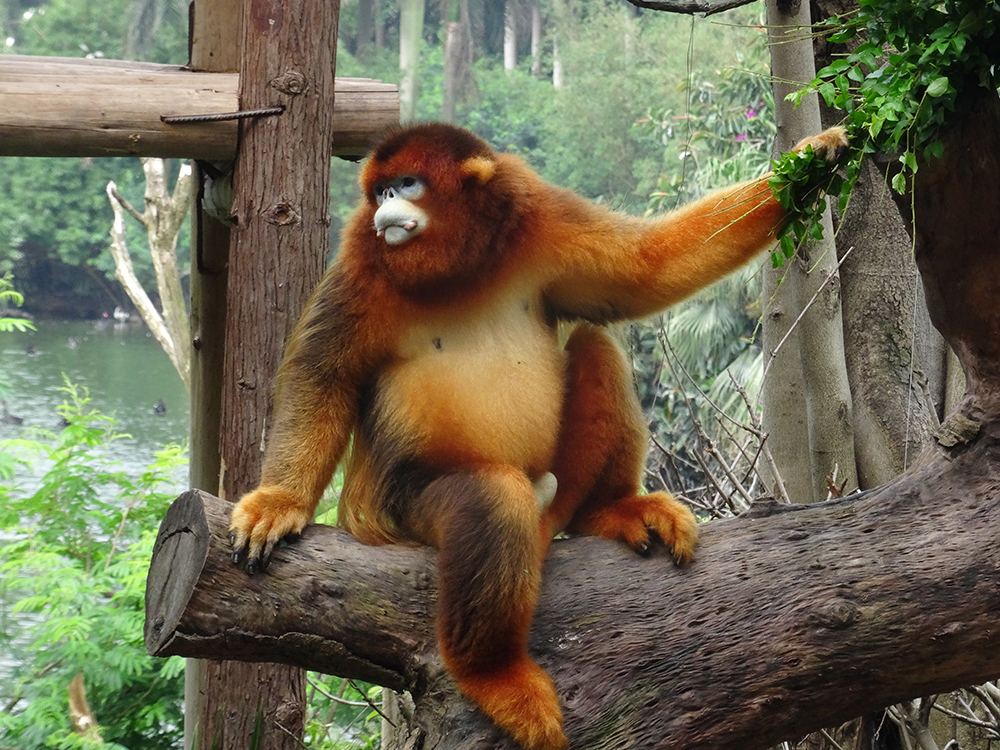
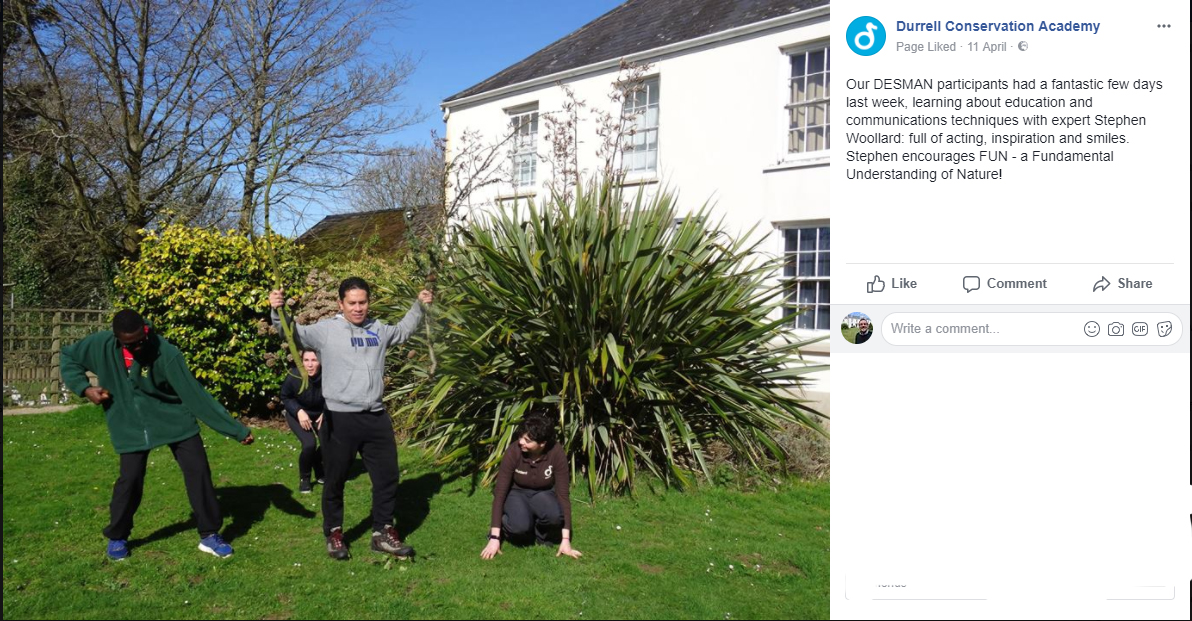 There is hope for the future. Conservation is often depicted as a battle and struggle, full of responding to ‘bad news’ and events – which undoubtedly it is. However, we should also be optimistic and celebrate the good news and success stories too. No conservation project, no matter how well conceived, planned and intentioned, will fully succeed unless it has the support of the people. Thankfully there are some amazing, inspiring and dedicated people around the world, working to conserve, protect and develop our understanding of nature. Some of these people are the participants in the Durrell Conservation Academy DESMAN course.
There is hope for the future. Conservation is often depicted as a battle and struggle, full of responding to ‘bad news’ and events – which undoubtedly it is. However, we should also be optimistic and celebrate the good news and success stories too. No conservation project, no matter how well conceived, planned and intentioned, will fully succeed unless it has the support of the people. Thankfully there are some amazing, inspiring and dedicated people around the world, working to conserve, protect and develop our understanding of nature. Some of these people are the participants in the Durrell Conservation Academy DESMAN course.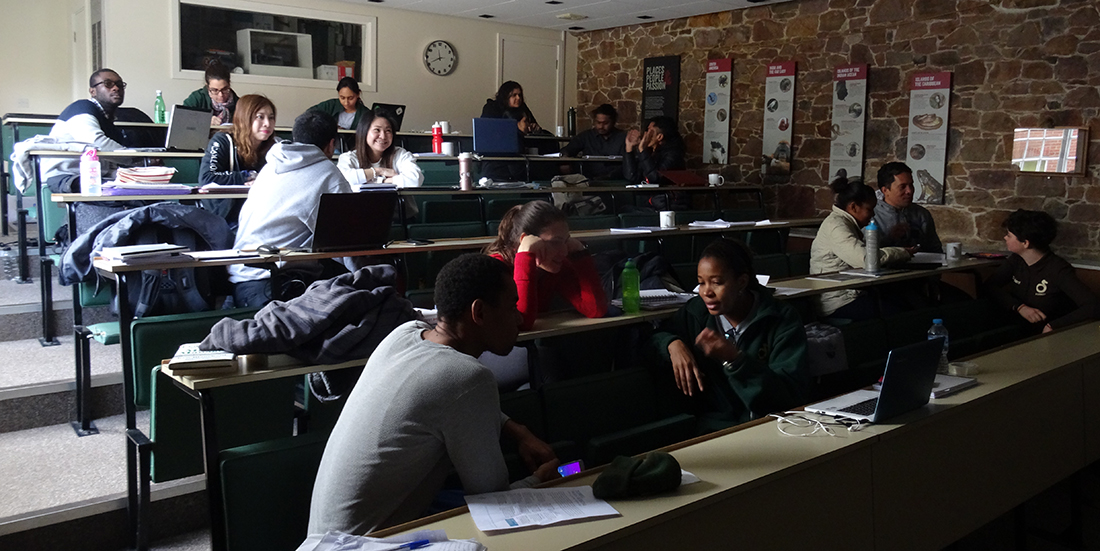 It was an honour and privilege to be invited to speak and lead a few days workshops for the DESMAN in Jersey once again; the third year I have done this. My education and communication ‘course’ was well received and I thoroughly enjoyed engaging with this year’s students who came from: Armenia, Brazil, Canada, China (Hong Kong), India, Nigeria, Samoa, St. Lucia, Seychelles, Sri Lanka, Sumatra, & UAE.
It was an honour and privilege to be invited to speak and lead a few days workshops for the DESMAN in Jersey once again; the third year I have done this. My education and communication ‘course’ was well received and I thoroughly enjoyed engaging with this year’s students who came from: Armenia, Brazil, Canada, China (Hong Kong), India, Nigeria, Samoa, St. Lucia, Seychelles, Sri Lanka, Sumatra, & UAE.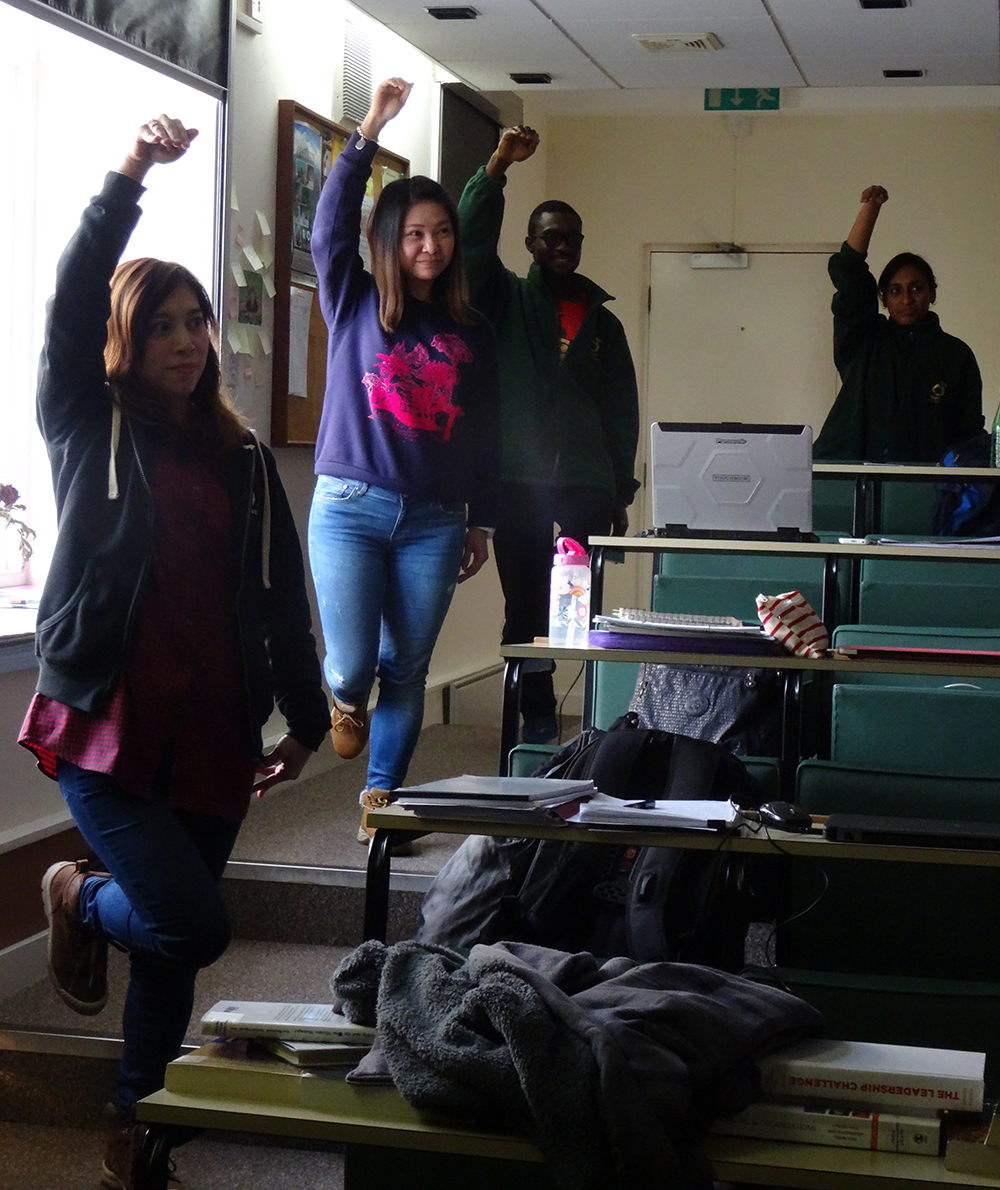
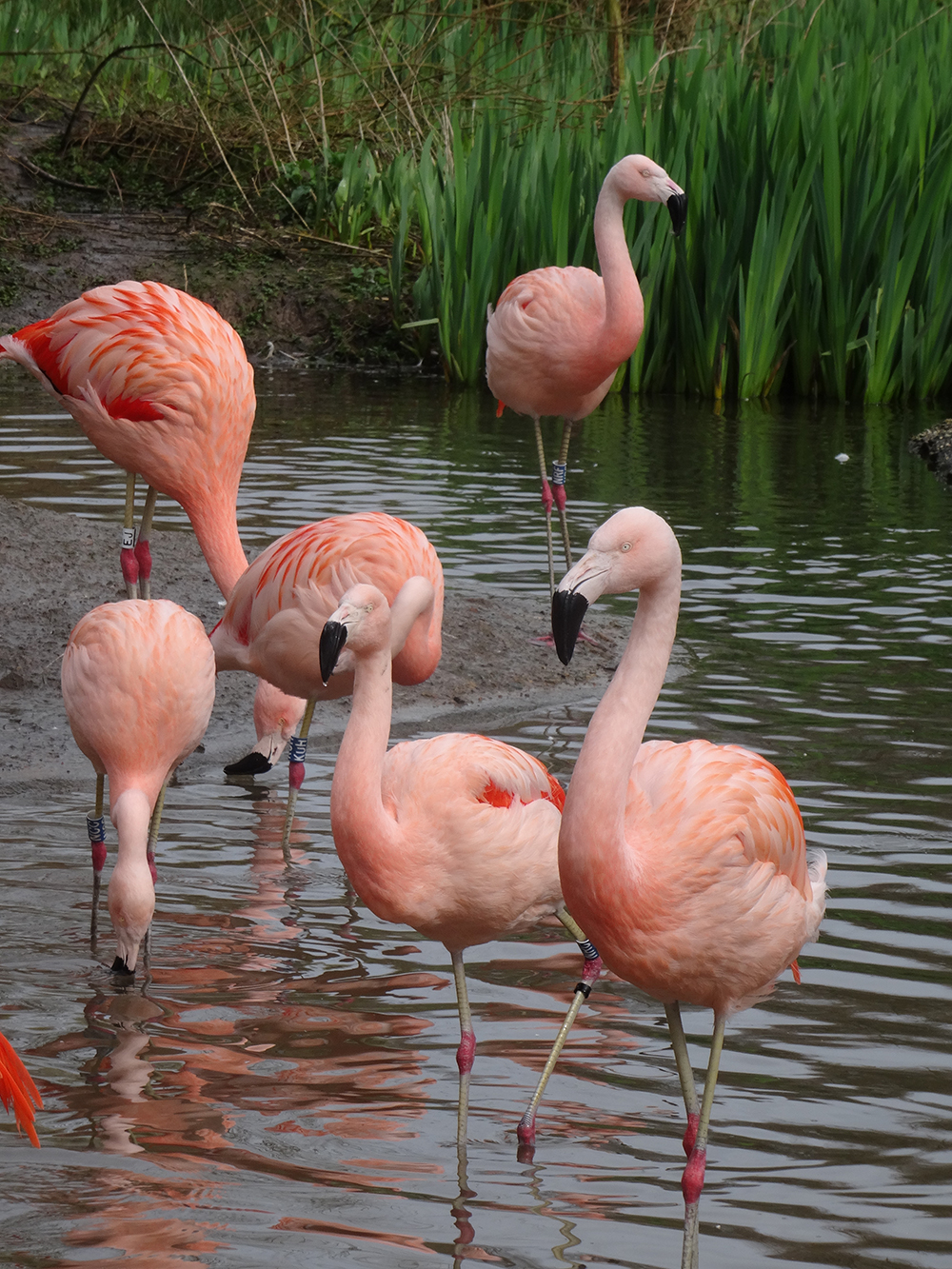
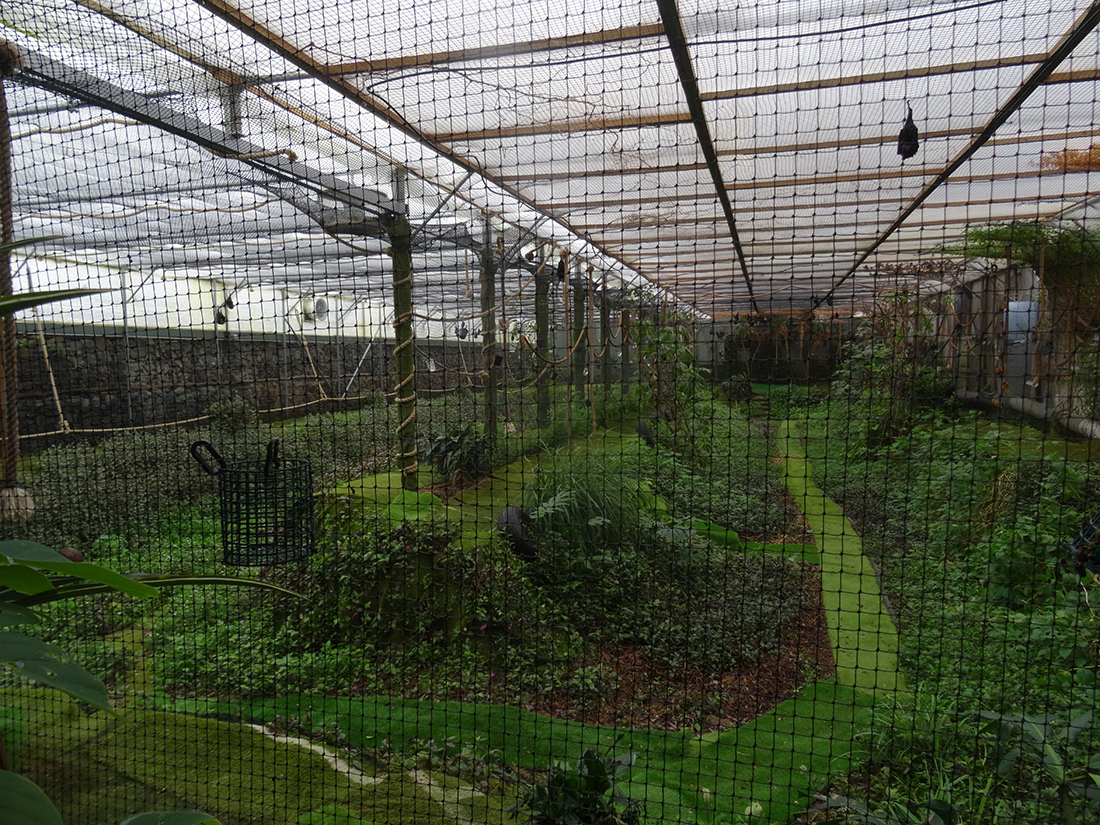 It was of course also great to return to Jersey Zoo, HQ of Durrell and enjoy time in the Zoo – not least the brilliant bat flight enclosure – which in itself has a great community and recycling story in its construction. We also enjoyed reviewing and critiquing the education for visitors, by observing talks, signs and discussing education programmes. One of the great aspects of the DESMAN is that the diversity of participants may have specific field projects and focus, but they get to understand endangered species management in general and the multi-faceted approach needed for conservation to succeed – including through education and communication.
It was of course also great to return to Jersey Zoo, HQ of Durrell and enjoy time in the Zoo – not least the brilliant bat flight enclosure – which in itself has a great community and recycling story in its construction. We also enjoyed reviewing and critiquing the education for visitors, by observing talks, signs and discussing education programmes. One of the great aspects of the DESMAN is that the diversity of participants may have specific field projects and focus, but they get to understand endangered species management in general and the multi-faceted approach needed for conservation to succeed – including through education and communication.